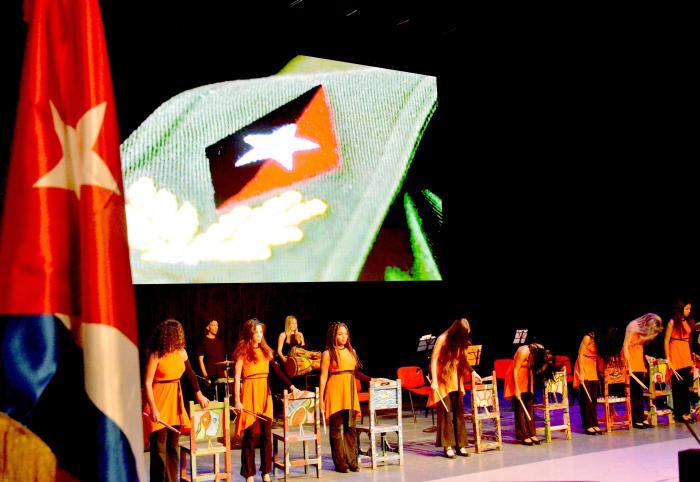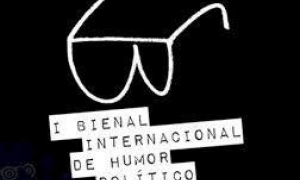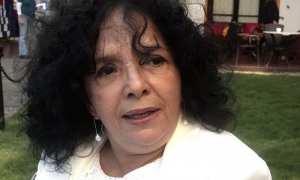
Culture, in its broadest concept, was a permanent obsession for Fidel, who was convinced of the crucial role it played in the transformation of a society that was making its debut in Revolution. Without it, he said, "there is no possible freedom".
Aware of the spiritual sustenance that culture provides, and of the strength it brings to a people, Fidel would have it among the top priorities of the Revolutionary Government, which had to sow the ideals that the new times were demanding.
Although -and recalling Cintio- it was astonishing "the fertilization erasing the countless frustrations, the unspeakable humiliations, the meticulous nightmares!", it was also true that "other combats were beginning then".
Led by its leader, the young Revolution was a titanic undertaking that, three months after its triumph, founded the National Printing House of Cuba and made its debut, not for nothing, with an edition of one hundred thousand copies of The Ingenious Hidalgo Don Quixote of La Mancha.
In addition to producing books, the Printing House published the materials used in the Literacy Campaign, the greatest cultural epic of the war, which took place in 1961 and put an end to one of the saddest passages of neocolonial Cuba, that of ignorance, by declaring the country, on December 22, a territory free of illiteracy.
Founded in 1959, other cultural institutions, which had become symbols of the country, such as Casa de las Américas -under the brilliant leadership of Haydee Santamaría- and the Cuban Institute of Cinematographic Art and Industry (Icaic), saw the light of day, and progressively supported the performance of many others, among them the National Theater, the National Library, the Symphonic Orchestra and the National Ballet of Cuba. That same year, Fidel would turn the barracks into schools.
TO SPEAK, TO TOUCH THE SOUL
The Commander-in-Chief always showed this communicative instinct, which knows the effectiveness of dialogue. He did it with teachers, with doctors, with scientists, with ordinary people, with children. When he spoke to the students at the opening ceremony of the first course at Ciudad Escolar Libertad on September 14, 1959, he explained to them, in a way they could understand, why this was "the most beautiful act of this Revolution".
He told them that many young people had paid for that conquest with their lives, "so the greatest gratitude of the children has to be for our comrades who died in the struggle; the greatest reverence of Cuban children has to be for the rebels who died, the revolutionaries who died, to make this dream come true".
To the children, admirers of the rebels, he told them that many of these soldiers could not go to school, and now they had to do what was offered to the little ones. With a father's love he told them that they had to learn to do things well, better than the rebels themselves, because the adults would have a lot to do, to prepare the people well.
In his speech, he asked them if they believed that the Revolution had already taken place. -No," the children chanted. -And if the Revolution has not been made, who is going to make it, he told them. -We are," they answered. -And what is the first thing you have to do," he asked again. -Study," they all said. And Fidel continued: "Ah, study. So, the child who does not study is not a good revolutionary, because the child who does not study will not know how to do things well and what happens to us will happen to him, when we go to do something and it doesn't turn out well; So the child who does not study is not a good rebel or a good revolutionary, because if they want to help the Revolution, if they want to help the rebels, if they want to help their homeland, they have to study, because he who does not know how to do things cannot help anyone, he makes mistakes, and even if he wants to do them well, he cannot do them well because he does not know how to do them".
WORDS FROM THE TRENCH
On June 30, 1961, Fidel concluded three days of exchange with writers, artists and intellectuals, an event that went down in history under the name of Words to the Intellectuals. Although the oversized censorship of the documentary pm, which had stirred up the environment of the creators, served as a pretext for the meeting, the truth is that Fidel had planned to meet with this social group and listen to their concerns. The meetings would constitute the outline of the cultural policy of the Revolution.
Not even with the country mobilized and having just lived through the mercenary aggression at Playa Girón, Fidel did not ignore issues related to culture. As a Martí follower, he knew that in order to be free one had to be cultured, and that culture was one of the names of the happiness that the Revolution longed for its people.
In order to dispel murmurings and neutralize slander, many issues were clarified: "The Revolution cannot pretend to suffocate art or culture when one of the goals and one of the fundamental purposes of the Revolution is to develop art and culture, precisely so that art and culture become a real heritage of the people", said Fidel, who, far from excluding, accepted the variety of thoughts, except for those who were "incorrigibly reactionary, (...) incorrigibly counterrevolutionary".
Many years later, in an interview granted to the program Hurón Azul, of Uneac (an organization that would be founded at the end of the First Congress of Writers and Artists of Cuba, two months after the aforementioned meetings), Ambrosio Fornet, National Prize for Literature, with respect to the most quoted -and many times decontextualized- phrase of Fidel in his speech: "with the Revolution everything, against the Revolution nothing", expressed:
"Cuba is a country that has always been placed in a very hard position, where being against certain things means being in favor of others. I have sometimes said that democracy is not practiced in the trenches. To the extent that the historical situation places us in a trench, we are left with the idea that for us, everything; for the enemy, nothing".
NEXT TO THEM, THE PRESENCE
In Fidel y la cultura, palabras a los escritores, artistas e instructores de arte (Fidel and Culture, Words to Writers, Artists and Art Instructors), a compilation by Elier Ramírez Cañedo and Luis Morlote Rivas, recently published by Ocean Sur, Abel Prieto says in his prologue: "Culture was never for Fidel something ornamental (...). He saw it as a transforming energy of enormous transcendence, associated with behavior, ethics, quality of life, capable of contributing decisively to "human improvement". But he saw it, above all, as the only way capable of leading us to emancipation".
In another book -also by Ramírez and Morlote- entitled Lo primero que hay que salvar (The First Thing to Save). Fidel's Speeches at Uneac, in reference to Fidel's key phrase regarding culture, its authors allude to the fact that exchanges with artists and writers would multiply in the 1990s, beyond the congresses, most of which he attended, and from those discussions would emerge the precepts on which the "new and profound cultural revolution, known as Battle of Ideas, would be based, which would reach its peak in the late 1990s and early 21st century, through numerous educational and social programs".
Among the concerns raised by the Leader of the Revolution at the VI Congress -the authors relate- was the issue of globalization and culture. Fidel referred to "how the U.S. government was using information and culture as the new nuclear weapon for the domination of the planet", and called on intellectuals and artists to play a leading role in his Girón in favor of culture.
Fidel was unable to attend the VII and VIII conclaves due to his already delicate health; however, his presence was unavoidable, deployed in the evocation of his thought and in the programs to which he gave life from his intellect and his clairvoyance.
In 2019, President Miguel Díaz-Canel attended the closing ceremony of the IX Uneac Congress. In an ovation speech, he urged intellectuals and artists to bring to our days the concepts raised by Fidel in his robust Words... to evaluate the new scenarios, the colonizing and trivializing platforms that seek to establish themselves.
The X Congress of the organization, held last year, paid homage to Army General Raúl Castro Ruz before Díaz-Canel. A dedication accompanied the small sculpture that would be sent to him: "To you dear Raul, who has always been a comrade in the defense of national culture, the grateful commitment of the Union where we will continue to defend the will of Fidel, who conceived the creative act as shield and sword of the nation".
The "Here we are and we will be", raised on the occasion by Marta Bonet, president-elect of Uneac, speaks of those sacred loyalties to men who lead and illuminate, as Fidel will never cease to do.






